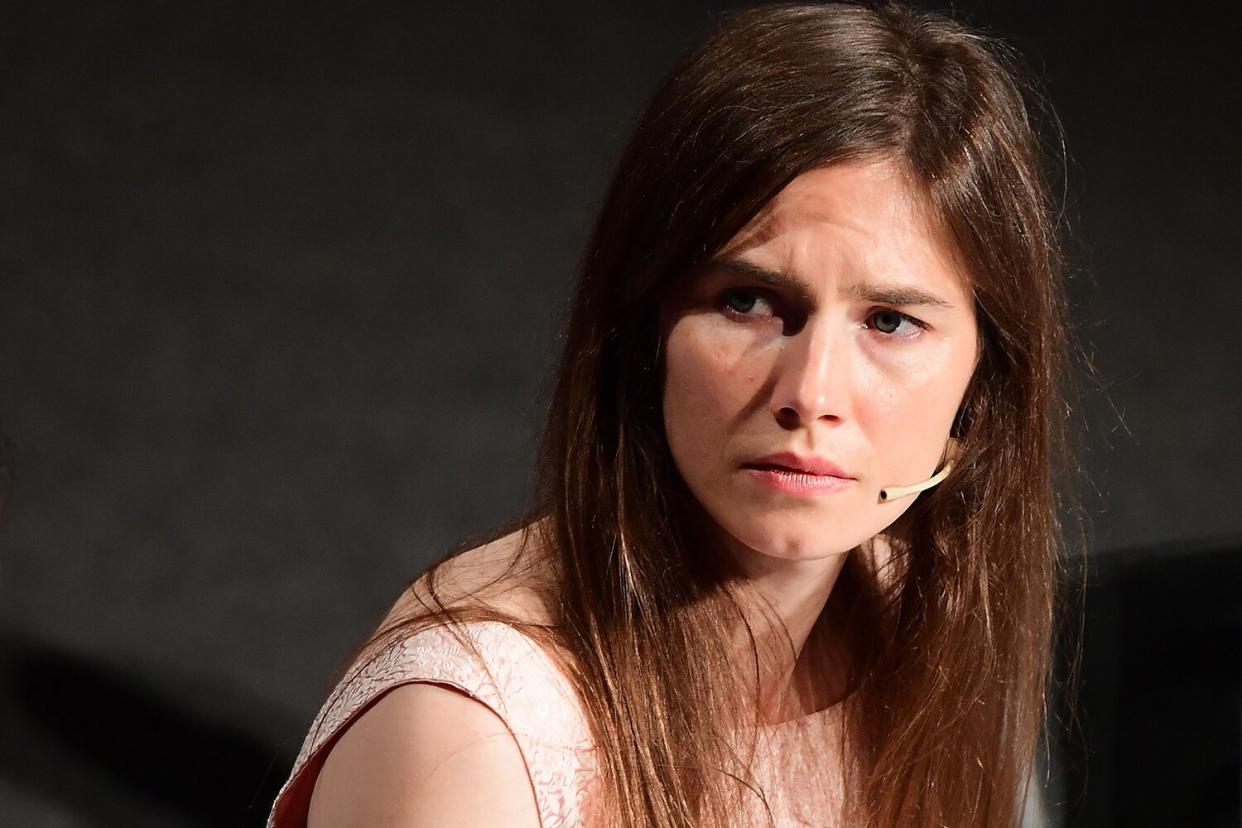New Mom Amanda Knox Says Women's Fertility Should Be Taken Into Account with Prison Sentencing

- Oops!Something went wrong.Please try again later.
VINCENZO PINTO/AFP via Getty
Amanda Knox is speaking on the affect long prison sentences can have on a woman's family planning.
The new mom recently welcomed her first baby, daughter Eureka Muse, with husband Christopher Robinson, months after revealing that she previously suffered a miscarriage. In an essay for OprahDaily.com titled "Sentenced to Infertility," Knox opens up about how her time in prison overseas interfered with her fertility and plans for motherhood.
Fourteen years ago, Knox was wrongfully convicted and then exonerated for the 2007 murder of roommate Meredith Kercher when she was a 20-year-old American student studying abroad in Perugia, Italy. She spent four years in prison.
"My first infertility crisis occurred when I was sentenced to 26 years in prison for a murder I didn't commit. I had been on trial for two years before that verdict was handed down, and until then, I'd naively assumed that the truth couldn't help but win out, that this was all a misunderstanding," she writes. "That guilty verdict shook the foundations of my world."
Knox says she "always imagined myself as a mother" but began adjusting to a "new and sad reality" at the time and planned "for life that involved 26 years behind bars."
Subscribe to our new 12-episode weekly podcast, Me Becoming Mom, to hear celebrity moms open up exclusively to PEOPLE about their extraordinary roads to motherhood.

Lou Rocco/ABC via Getty Images
RELATED GALLERY: Celebrity Babies Born in 2021
"Having children wasn't even a question. Now I was facing the prospect of being released back into free society at age 46. It wasn't just my freedom that had been stolen from me; motherhood had been stolen from me," she says.
Expanding on the issue, Knox writes, "This is something that is often not acknowledged when women are imprisoned. Both men and women can lose their most productive years when sentenced to overly long and punitive sentences, but men's reproductive functions do not expire the way women's do. When a woman is convicted and given a long sentence, she is effectively sentenced not just to time, but to infertility."
In a call to action, Knox suggests supporting "organizations like the Sentencing Project, which is fighting mass incarceration — something that has currently swept up more than 200,000 women in the United States."
"Wanting to have children and facing infertility is a unique form of existential pain. When biology is the cause, all we can do is connect with each other, and realize we're not alone. But when criminal justice is the cause, there is something we can do about it. ... We can recognize the stakes for getting it right when women are accused of crimes, and we can take their fertility into account during sentencing."
She adds, "A 20-year sentence for a woman isn't just time — it's a life that could be, a child waiting for the chance to be born."
Announcing her baby's arrival last month, the author and activist posted on Instagram a photo of herself and Eureka taken by Ricardo Nagaoka for her New York Times profile, calling it "the only picture of her I will ever share on social media." She added, "I know that I cannot 100% protect my daughter from the kind of treatment I've suffered, but I'm doing the best I can."

